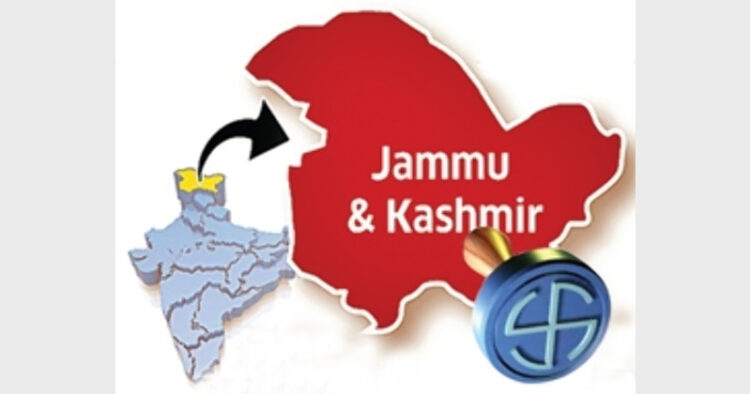Intro: It is time to replace the politics of identity with politics of ideology.?
 With the successive defeats of Congress and the increasing chances of Bharatiya Janata Party getting a clear majority in centre, we have witnessed big changes in the Indian political Diaspora in the recent past. The plight of Congress and its allies seems to continue and the leadership has no clue about what should be their agenda in the upcoming polls and the morale of the party cadre seems low.
With the successive defeats of Congress and the increasing chances of Bharatiya Janata Party getting a clear majority in centre, we have witnessed big changes in the Indian political Diaspora in the recent past. The plight of Congress and its allies seems to continue and the leadership has no clue about what should be their agenda in the upcoming polls and the morale of the party cadre seems low.
All eyes are set on upcoming assembly elections in Jammu and Kashmir which will also be covered by international media. Despite being the only Muslim majority state in India, it is more likely that J&K will join the nation and vote for the so called right wing party to bring it to power.
Relief work done by Army has won the heart of Kashmiris and even separatist leader like Mirwaiz Umar Farooq has said that BJP is better than Congress; It is a clear indication of what is going in the mind of Kashmiris. Leaders of other parties in the state are apprehended by their certain defeat and now they have started playing communal card by saying that a Hindu chief minister is not acceptable to the people of J&K. Communalism and divisive politics has replaced development and peace from the election agenda of all regional parties, and even a national party like Congress seems to have given their mute consent over this issue.
In a bid to polarize the poll, PDP MLA Peerzada Mansoor said that only a Muslim can become the CM of J&K but no senior leader from any party came forward to condemn this statement. If such statements are driven out of the fact that J&K is a Muslim majority state, then India is also a “Hindu-Rashtra” by the same analogy. Without going into the legitimacy of the Hindu Rashtra remark given by RSS chief Mohan Bhagwat, it must be emphasised that if the UPA and Left leaders don’t condemn the statement given by PDP MLA due to petty political considerations, then they do not have the moral right to raise concerns over the statements given by the leaders of Sangh Pariwar. If we go by the majoritarian rule in this country then India should be a Hindu nation, but because we are a secular democratic country, someone’s religious identity cannot be a criterion for a person’s suitability to any position.
Identity based politics is deep rooted in J&K and for most part since it came into being, it has been ruled by Abdullahs and Sayeeds. My argument is, if Muslims can become president and hold key positions in the bureaucracy then why cannot a Hindu become the chief minister of J&K.
Politicians claim-We all are proud of our pluralism- the question is, if we are secular in true sense then why are such issues raised during the election? As far as J&K is concerned, the Valley has benefited at the cost of Jammu & Ladakh. Kashmir though holds only 16% of the land mass and 52% of the total population of the state, it still enjoys lions share in the state administration and most of the chief ministers belong to the Valley only. The appeasement policy started by Jawaharlal Nehru still continues and nobody really cares about the people of Jammu and Ladakh region. Delhi took them for granted over the years and they remained neglected; but its time they get their due.
All those people who issue communal statement to fuel fanaticism forget the fact that lakhs of Kashmiri Pandits still live as refugee in their own country due to this fundamentalism. We should be cautious about the growing fundamentalism among youth in J&K (like flagging ISIS T-Shirts and holding its flag) and must remember the bloody history of India-Pakistan partition.
All such divisive efforts should be discouraged and a clear message should be given that we are united. Maybe it’s also the right time to announce a Kashmiri Pandit as the CM candidate to heal the wounds of the exiled community and uphold Kashmiriyat?
Shshank Saurav ?(The writer is a Chartered Accountant)?













Comments